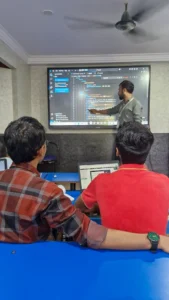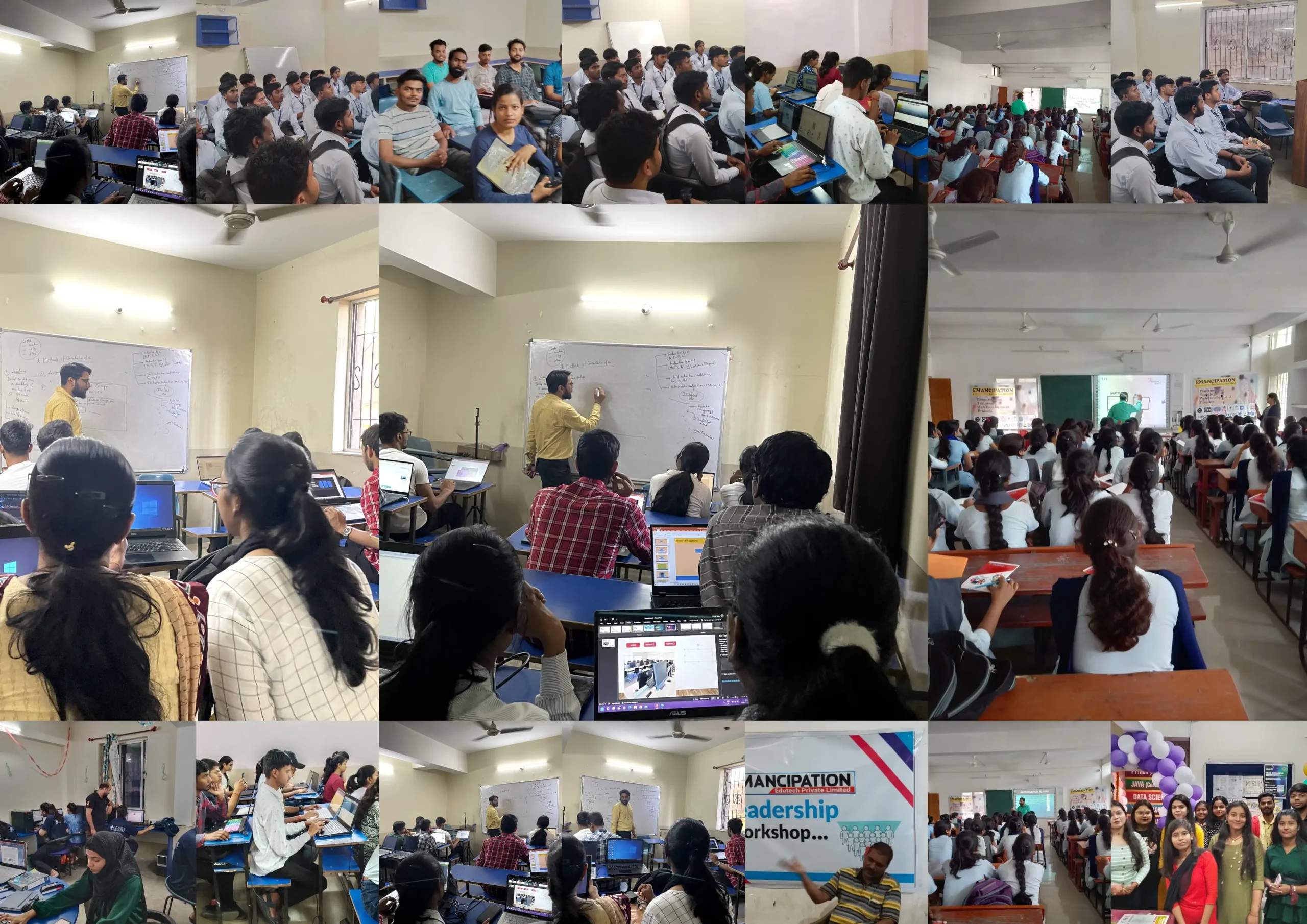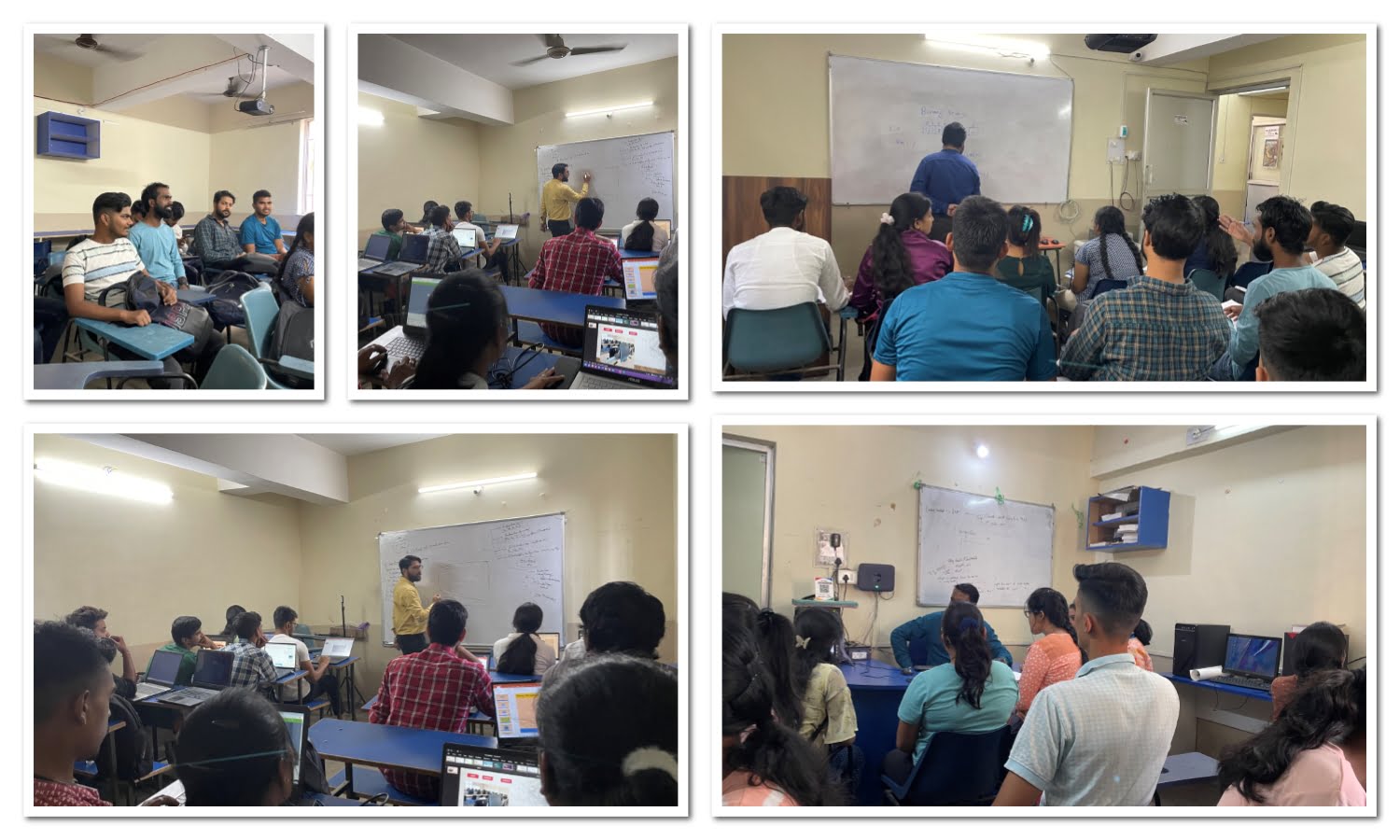Blogs Archive

Why Python Is the Best Language for Data Science — Learn from the Best Data Science Classes in Ranchi at Plaza Chowk
Why Python Is the Best Language for Data Science — Learn from the Best Data Science Classes in Ranchi at

The Role of Machine Learning in Data Prediction — Transforming the Future with Emancipation Edutech Pvt. Ltd, Ranchi
The Role of Machine Learning in Data Prediction — Transforming the Future with Emancipation Edutech Pvt. Ltd, Ranchi In today’s

Best Machine Learning Frameworks for Developers
Best Machine Learning Frameworks for DevelopersFor B.Tech, M.Tech, BCA & Polytechnic Students — Perfect for College and Distance Learners In

How to Build Your First Machine Learning Model in Python
How to Build Your First Machine Learning Model in PythonBy Emancipation Edutech Pvt. Ltd., Lalpur, Ranchi – The Best Training

Understanding Neural Networks: The Brain Behind Machine Learning
Understanding Neural Networks: The Brain Behind Machine LearningPowered by Emancipation Edutech Pvt. Ltd. – The Best Training Center in Ranchi

How Machine Learning Is Transforming Marketing – Learn from the Best at Emancipation, Ranchi
How Machine Learning Is Transforming Marketing – Learn from the Best at Emancipation, Ranchi In today’s digital age, Machine Learning

Top 10 Machine Learning Projects for Beginners
Top 10 Machine Learning Projects for BeginnersLearn Practically at Ranchi Plaza Chowk, Lalpur — Best ML Training Center: Emancipation Edutech

Top Machine Learning Algorithms Explained Simply
Top Machine Learning Algorithms Explained SimplyLearn from the Best Machine Learning Training Center in Ranchi – Emancipation Edutech Pvt. Ltd.,

Top Machine Learning Algorithms Explained Simply
Top Machine Learning Algorithms Explained SimplyLearn from the Best Machine Learning Training Center in Ranchi – Emancipation Edutech Pvt. Ltd.,

What Is Machine Learning? A Beginner’s Guide
In today’s technology-driven world, the term Machine Learning (ML) has become a buzzword across industries — from finance and healthcare

Top AI Tools and Frameworks to Learn in 2025
Top AI Tools and Frameworks to Learn in 2025Emancipation Training Center – Top AI Training in Ranchi Artificial Intelligence (AI)

AI in Business: How Companies Are Using Smart Algorithms
AI in Business: How Companies Are Using Smart AlgorithmsEmancipation Training Center – Plaza Chowk, Lalpur, Ranchi Artificial Intelligence (AI) is

Ethical Challenges in Artificial Intelligence Development
Ethical Challenges in Artificial Intelligence DevelopmentEmancipation Training Center, Plaza Chowk, Ranchi Artificial Intelligence (AI) has become one of the most

The Future of AI-Powered Education in India
The Future of AI-Powered Education in India Artificial Intelligence (AI) is changing the way the world learns — and India

AI in Healthcare: How Smart Systems Are Saving Lives
AI in Healthcare: How Smart Systems Are Saving Lives Artificial Intelligence (AI) has become one of the most powerful technologies


Top Machine Learning Algorithms Explained Simply

Top Machine Learning Algorithms Explained Simply

What Is Machine Learning? A Beginner’s Guide

Top AI Tools and Frameworks to Learn in 2025


Ethical Challenges in Artificial Intelligence Development

The Future of AI-Powered Education in India

AI in Healthcare: How Smart Systems Are Saving Lives

Top 10 Real-World Applications of Artificial Intelligence in 2025 (Emancipation / Lalpur-Kokar Perspective)

How Artificial Intelligence is Revolutionizing Everyday Life





How to Crack Interviews for AI/ML Jobs in Ranchi: A Complete Guide by Emancipation Edutech
Why Emancipation Edutech is the Best Place to Learn Programming and Data Science



